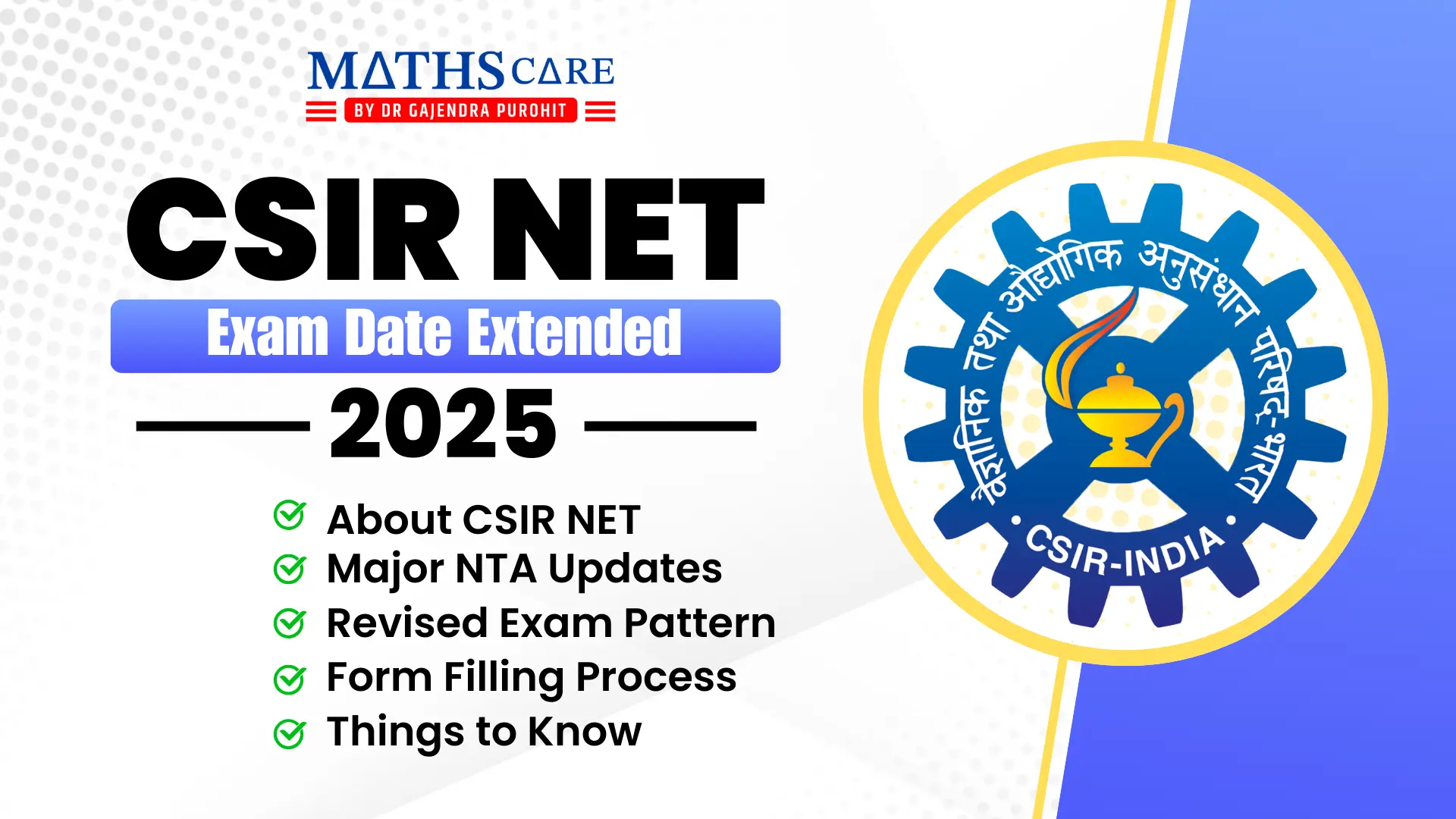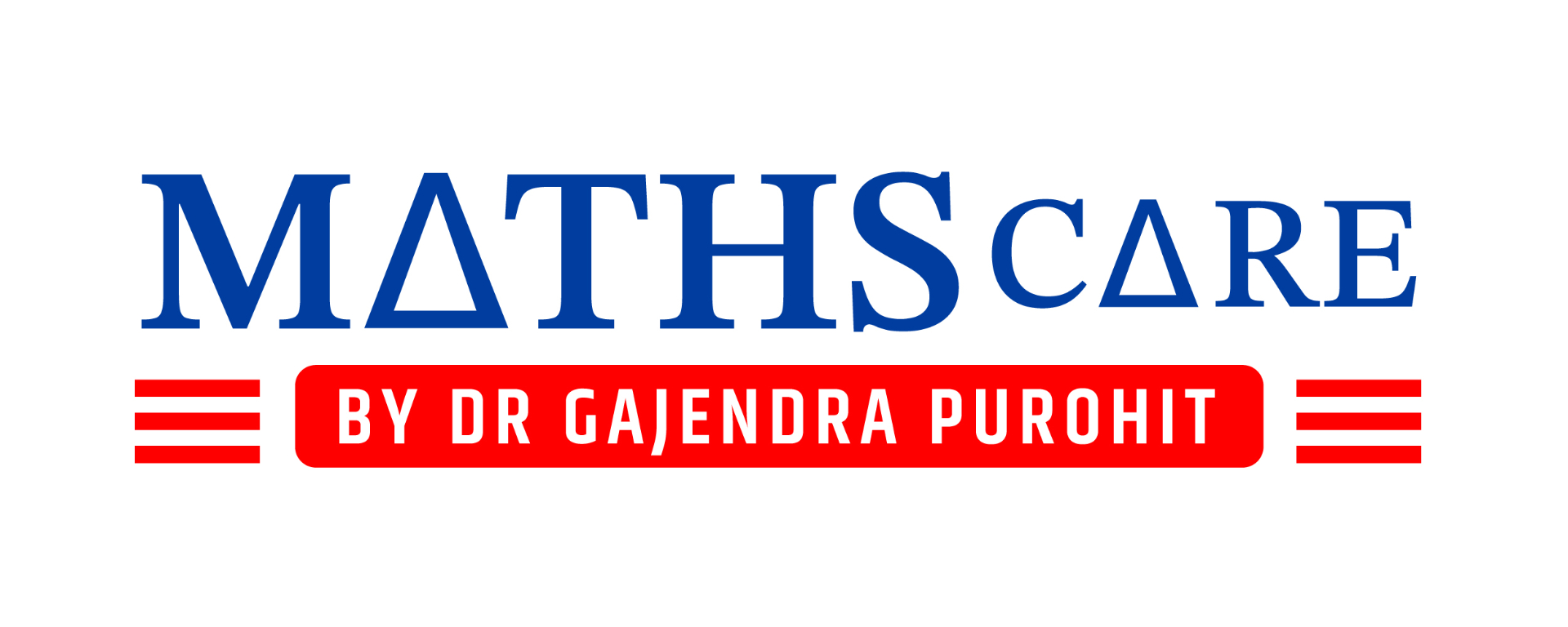Comprehensive Guide to CSIR NET General Aptitude
CSIR NET GENERAL APTITUDE:
Cracking the Council of Scientific & Industrial Research National Eligibility Test (CSIR NET) is a significant milestone for aspiring scientists and researchers in India. Beyond the specialized subject areas, the General Aptitude section plays a crucial role in determining your overall score and, consequently, your eligibility for the coveted Junior Research Fellowship (JRF) and Lectureship positions. This comprehensive guide delves into everything you need to know about the CSIR NET General Aptitude section—from its structure and weightage to effective preparation strategies and cutoff trends. Whether you’re a first-time aspirant or looking to improve your previous performance, this guide is tailored to help you navigate the complexities of the General Aptitude component with ease and confidence.

About CSIR NET Exam
The CSIR NET is an annual examination conducted by the Council of Scientific & Industrial Research (CSIR) to determine eligibility for JRF and Lectureship positions in Indian universities and research institutions. The exam is open to candidates holding a Master’s degree in relevant subjects, and it is highly regarded for its rigorous testing of both subject-specific knowledge and general scientific aptitude.
Objectives of CSIR NET:
Assess Research Capability: To evaluate a candidate’s potential to undertake research in scientific fields.
Eligibility for JRF: To determine eligibility for the Junior Research Fellowship, which provides financial support for pursuing research.
Lectureship Qualification: To qualify candidates for Lectureship positions, enabling them to teach at the university level.
Structure of CSIR NET Exam
The CSIR NET exam is divided into two main sections:
General Aptitude: This section tests your analytical and reasoning abilities, along with basic scientific knowledge.
Subject-specific Section: This section assesses your expertise in your chosen subject area, which varies based on the discipline you are applying for.
The exam is conducted in a computer-based test (CBT) format and typically spans three hours, with the General Aptitude section being an integral part of the overall assessment.
General Aptitude Weightage: 20 Questions and 30 Marks
The General Aptitude section holds significant weightage in the CSIR NET exam, comprising 20 questions worth 30 marks. This section is designed to evaluate your reasoning abilities, problem-solving skills, and basic scientific understanding, which are essential for a successful career in research and academia.
Breakdown of General Aptitude
Comprehension: Questions based on passages that test your understanding and ability to interpret information.
Logical Reasoning: Problems that assess your logical thinking and ability to make connections between different pieces of information.
Quantitative Aptitude: Basic mathematical problems that evaluate your numerical and quantitative skills.
Data Interpretation: Questions based on data presented in various forms like charts, tables, and graphs.
Basic Scientific Knowledge: Fundamental questions related to general science topics, ensuring that candidates have a well-rounded scientific background.
Syllabus for General Aptitude
Understanding the syllabus is pivotal for effective preparation. The General Aptitude section covers a wide range of topics that test both your quantitative and verbal skills.
Quantitative Aptitude
Algebra: Simplification, equations, and inequalities.
Calculus: Basic concepts and applications.
Probability: Fundamental principles and problem-solving.
Number Systems: Properties and operations.
Logical Reasoning
Series Completion: Identifying patterns in sequences.
Analogies: Establishing relationships between pairs of words or concepts.
Classification: Grouping items based on shared characteristics.
Syllogisms: Logical deductions based on given premises.
Data Interpretation
Tables and Charts: Interpreting data from various formats.
Graphs: Analyzing trends and patterns from graphical data.
Comprehension and Communication
Reading Comprehension: Understanding and interpreting passages.
Vocabulary: Meaning of words and their usage.
Sentence Structure: Identifying grammatical errors and improving sentence construction.
Basic Science
Physics: Fundamental concepts and principles.
Chemistry: Basic chemical reactions and properties.
Biology: Essential biological processes and systems.
Strategies for Effective Preparation
Implementing the right strategies can make your preparation more efficient and effective. Here are some strategies tailored for the General Aptitude section:
1. Balanced Study Plan
Create a study plan that balances time between different topics. Allocate more time to areas where you are weaker while maintaining strengths.
2. Regular Mock Tests
Taking regular mock tests helps simulate the exam environment, improving your time management and reducing exam-day anxiety.
3. Focus on Accuracy
Always remember to maintain your accuracy and never compromise it. Practice solving questions accurately to avoid negative marking.
4. Shortcuts and Tricks
Learn mathematical shortcuts and logical reasoning tricks to solve problems faster. This can be a game-changer in managing time effectively.
5. Analyze Mock Test Results
After each mock test, thoroughly analyze your performance. Identify patterns in your mistakes and work on eliminating them.
6. Stay Calm and Confident
Maintaining a positive attitude and staying calm during preparation and the actual exam can greatly enhance your performance.
Leveraging Previous Year Papers
Working through previous years’ question papers is one of the most effective ways to prepare for the General Aptitude section. It lets you get a hag of the exam pattern, question types, and difficulty level.
Benefits of Solving Previous Papers
Familiarity with Exam Pattern: Get accustomed to the structure and types of questions asked.
Identify Important Topics: Recognize recurring topics and allocate more study time accordingly.
Improve Time Management: Learn to pace yourself to complete the section within the allotted time.
Boost Confidence: Successfully solving previous papers builds confidence and reduces exam-day anxiety.
Group Study and Peer Discussions
Studying in groups or discussing with peers can enhance your understanding and expose you to different problem-solving approaches.
Advantages of Group Study
Diverse Perspectives: Gain insights from others’ understanding and problem-solving methods.
Motivation and Support: Stay motivated and supported throughout your preparation journey.
Clarification of Doubts: Clear any lingering doubts through collective knowledge and discussion.
Managing Exam Stress
Exam stress is a common challenge that can impact your performance. Here are some points to keep in mind:
1. Regular Breaks
Include snack breaks and some exercises or maybe some walks in your study schedule to relax and rejuvenate.
2. Physical Activity
Engage in regular physical activities like walking, yoga, or sports to reduce stress levels.
3. Mindfulness and Meditation
Practicing mindfulness or meditation can help calm your mind and improve focus.
4. Healthy Diet
Maintain a balanced diet rich in nutrients to support brain function and overall health.
5. Adequate Sleep
Ensure you get enough sleep each night to stay refreshed and alert during your studies.
Mock Test Analysis
Analyzing your performance in mock tests is crucial for identifying areas of improvement. Here’s how to effectively analyze your mock test results:
1. Review Incorrect Answers
Understand why you got a question wrong. Was it due to a lack of knowledge, a careless mistake, or time pressure?
2. Time Allocation
Fix your mind on managing your time during the test. Did you spend too much time on certain questions?
3. Strengths and Weaknesses
Identify the topics where you excel and those that need more attention. Focus your study efforts accordingly.
4. Strategy Adjustment
Based on your analysis, tweak your exam strategy. For instance, prioritize easier questions first to secure quick marks.
Cutoffs for General Aptitude
Cutoffs are the minimum scores required to qualify for the next stage of the examination. They vary each year based on factors like the difficulty level of the exam, the number of candidates, and overall performance.
Factors Influencing Cutoffs
Difficulty Level: A tougher exam may lead to higher cutoffs.
Number of Candidates: More candidates generally increase competition, thereby raising the cutoff.
Performance Distribution: The overall performance of candidates influences the cutoff marks.
Category-wise Relaxation: Different categories (SC/ST/OBC/General) have varying cutoff marks.
Historical Cutoff Trends
Analyzing previous years’ cutoff trends can provide insights into what to expect and how to strategize your preparation.
General Category: Typically higher cutoffs due to more competition.
Reserved Categories: Lower cutoffs, reflecting the relaxation provided to these groups.
Subject-wise Variation: Different subjects may have different cutoff patterns based on the number of candidates and difficulty level.
Preparation Tips for General Aptitude
Excelling in the General Aptitude section requires a strategic approach.
1. Understand the Syllabus and Exam Pattern
Familiarize yourself with the detailed syllabus and the exam pattern. Knowing the types of questions and the marking scheme helps in targeted preparation.
2. Develop a Study Plan
Create a realistic study schedule that allocates sufficient time to each topic. Areas where you feel less confident should be your number one priority.
3. Strengthen Your Basics
Ensure a strong foundation in basic mathematics, logical reasoning, and scientific concepts. This will help you tackle complex problems with ease.
4. Practice Regularly
Consistent practice through mock tests and previous years’ papers is essential. It not only improves speed and accuracy but also builds confidence.
5. Time Management
Efficient time management is the key. Allocate specific time slots to each question and stick to them to avoid getting stuck on difficult problems.
7. Use Quality Study Material
Refer to standard textbooks and reliable online resources. Avoid getting overwhelmed with too many materials; focus on quality rather than quantity.
8. Stay Updated with Current Affairs
Although not heavily emphasized, having a basic understanding of current scientific developments can be beneficial, especially in the comprehension section.
9. Join Study Groups or Forums
Engaging with peers can provide new insights, different problem-solving approaches, and moral support during your preparation journey.
Previous Year Trends and Analysis
Understanding the trends from previous years can offer valuable insights into the examination’s nature and help you strategize your preparation effectively.
Difficulty Level
The General Aptitude section has maintained a moderate difficulty level over the years. However, fluctuations can occur based on the overall exam difficulty and candidate performance.
Question Types
Comprehension Passages: These questions require careful reading and understanding of given passages.
Logical Puzzles and Series: Candidates should be adept at identifying patterns and solving puzzles quickly.
Basic Mathematical Problems: Emphasis on fundamental concepts rather than complex calculations.
Data Interpretation: Ability to interpret and analyze data presented in various formats.
Time Allocation
Candidates typically spend around 30-40 minutes on the General Aptitude section, depending on their strengths and weaknesses in different areas.
Conclusion
Mastering the General Aptitude section of the CSIR NET exam is a blend of understanding the syllabus, strategic preparation, and consistent practice. By following the guidelines outlined in this comprehensive guide—ranging from understanding the exam structure and syllabus to leveraging online resources and managing exam stress—you can enhance your chances of excelling in this pivotal section. Remember, the journey to success is paved with dedication, smart work, and a positive mindset. Equip yourself with the right tools and strategies, stay focused, and you’ll be well on your way to achieving your academic and research aspirations through the CSIR NET examination.
Common Mistakes to Avoid
Avoiding common pitfalls can significantly enhance your performance in the General Aptitude section. Some to watch out for are:
1. Ignoring Time Management
Spending too much time on difficult questions can lead to unfinished sections. Practice timed quizzes to improve your speed and accuracy.
2. Neglecting the Basics
A strong foundation is essential. Don’t skip basic concepts thinking they are easy; they often form the basis for more complex problems.
3. Overlooking Instructions
Carefully read the instructions for each question to avoid simple errors like selecting multiple answers where only one is required.
4. Inadequate Practice
Relying solely on theoretical knowledge without ample practice can hinder your ability to apply concepts effectively during the exam.
CSIR NET FAQS
Is CSIR a good career?
CSIR NET Qualification is not only acclaimed in India but holds value abroad as well. If you qualify CSIR NET Exam with a good rank, you can use it to apply for Ph. D. & postdoc abroad over a good scholarship.
What is the net CSIR exam for?
The Joint CSIR UGC NET exam is conducted to determine the eligibility of Indian nationals for Junior Research Fellowship (JRF) and Lectureship (LS)/Assistant Professor roles in Indian universities and colleges, subject to fulfilling UGC criteria.
What is the salary of CSIR NET?
The salary of a CSIR NET-qualified Lecturer ranges between INR 37,000 to 67,000 per month. Depending on UGC guidelines, it can increase to between 1.33 lakhs and 1.41 lakhs per month.
Is CSIR NET only for Science students?
The CSIR UGC NET examination is conducted for the following subjects: Chemical Science, Earth Science, Physical Science, Life Science, and Mathematical Science.
Is JRF equal to PhD?
No, JRF and PhD are complementary in academia. The JRF provides financial support to students, while a PhD signifies mastery of a chosen field.
BEST OFFERING COURSES FOR YOU
BEST BOOKS FOR IIT JAM/ CSIR-NET
BUY BOOKS ON OUR APP











